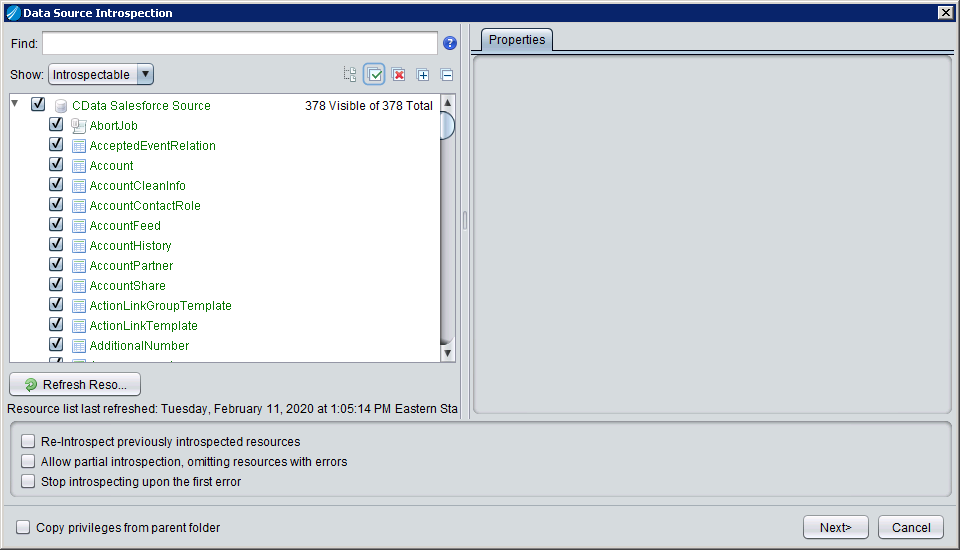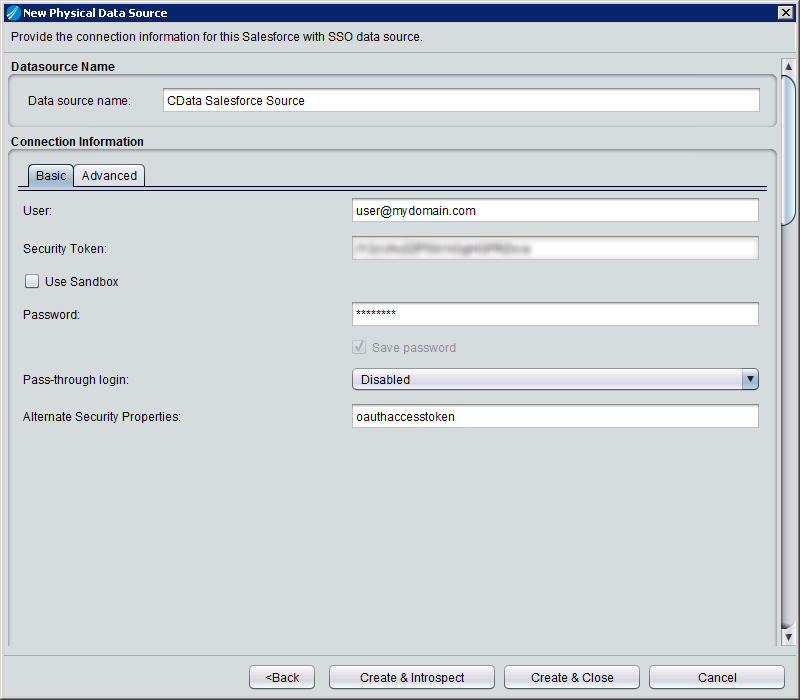Discover how a bimodal integration strategy can address the major data management challenges facing your organization today.
Get the Report →Access Live Clio Data in TIBCO Data Virtualization
Use the CData TIBCO DV Adapter for Clio to create a Clio data source in TIBCO Data Virtualization Studio and gain access to live Clio data from your TDV Server.
TIBCO Data Virtualization (TDV) is an enterprise data virtualization solution that orchestrates access to multiple and varied data sources. When paired with the CData TIBCO DV Adapter for Clio, you get federated access to live Clio data directly within TIBCO Data Virtualization. This article walks through deploying an adapter and creating a new data source based on Clio.
With built-in optimized data processing, the CData TIBCO DV Adapter offers unmatched performance for interacting with live Clio data. When you issue complex SQL queries to Clio, the adapter pushes supported SQL operations, like filters and aggregations, directly to Clio. Its built-in dynamic metadata querying allows you to work with and analyze Clio data using native data types.
Deploy the Clio TIBCO DV Adapter
In a console, navigate to the bin folder in the TDV Server installation directory. If there is a current version of the adapter installed, you will need to undeploy it.
.\server_util.bat -server localhost -user admin -password ******** -undeploy -version 1 -name API
Extract the CData TIBCO DV Adapter to a local folder and deploy the JAR file (tdv.api.jar) to the server from the extract location.
.\server_util.bat -server localhost -user admin -password ******** -deploy -package /PATH/TO/tdv.api.jar
You may need to restart the server to ensure the new JAR file is loaded properly, which can be accomplished by running the composite.bat script located at: C:\Program Files\TIBCO\TDV Server <version>\bin. Note that reauthenticating to the TDV Studio is required after restarting the server.
Sample Restart Call
.\composite.bat monitor restartOnce you deploy the adapter, you can create a new data source in TDV Studio for Clio.
Create a Clio Data Source in TDV Studio
With the CData TIBCO DV Adapter for Clio, you can easily create a data source for Clio and introspect the data source to add resources to TDV.
Create the Data Source
- Right-click on the folder you wish to add the data source to and select New -> New Data Source.
- Scroll until you find the adapter (e.g. Clio) and click Next.
- Name the data source (e.g. CData Clio Source).
Fill in the required connection properties.
Start by setting the Profile connection property to the location of the Clio Profile on disk (e.g. C:\profiles\Clio.apip). Next, set the ProfileSettings connection property to the connection string for Clio (see below).
Clio API Profile Settings
Clio uses OAuth-based authentication.
First, register an OAuth application with Clio. You can do so by logging to your Developer Account and clicking the Add button. Enter details and select the scope of your application here - these details will be shown to Clio users when they're asked to authorize your application. Your Oauth application will be assigned a client id (key) and a client secret (secret). Additionally you will need to set the Region in ProfileSettings connection property.
After setting the following connection properties, you are ready to connect:
- AuthScheme: Set this to OAuth.
- InitiateOAuth: Set this to GETANDREFRESH. You can use InitiateOAuth to manage the process to obtain the OAuthAccessToken.
- OAuthClientId: Set this to the client_id that is specified in you app settings.
- OAuthClientSecret: Set this to the client_secret that is specified in you app settings.
- CallbackURL: Set this to the Redirect URI that is specified in your app settings.
- Region: Set this in ProfileSettings to your Clio geographic region. Defaults to app.clio.com.
![Filling in Connection Information (Salesforce is shown.)]()
- Click Create & Close.
Introspect the Data Source
Once the data source is created, you can introspect the data source by right-clicking and selecting Open. In the dashboard, click Add/Remove Resources and select the Tables, Views, and Stored Procedures to include as part of the data source. Click Next and Finish to add the selected Clio tables, views, and stored procedures as resources.

After creating and introspecting the data source, you are ready to work with Clio data in TIBCO Data Virtualization just like you would any other relational data source. You can create views, query using SQL, publish the data source, and more.






